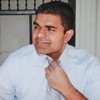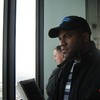This question originally appeared on Quora:What does it feel like to be racially profiled?
Answer by Raj Ramanan, Co-Founder, Loku
I am an American of Indian (sub-continental) descent, and I have been racially profiled. I can understand why this happens, but it can be frustrating at times, and occasionally humorous. Specific examples:
1) Airport security: As was mentioned several times on this thread, I have definitely been profiled in line. I was a consultant and traveled every week for 3 years. I started my career in 2000 and experienced a big change in how I was treated right after 9/11. For one project, I flew in and out of Wichita, KS for 9 months and my manager (middle aged, white) and I would bet on whether I'd be stopped for additional screening. I was stopped 75% of the time walking through the airport while he was stopped under 10% of the time. Since we flew out on the exact same flight every week (Thursday evening), we actually knew the security guards and TSA agents by name. Yet I was routinely stopped for a "random" screening. I saw the humor in it, but it was pretty ridiculous. On a different project, I was flying back from Portland, OR and was stopped for 3 separate screenings -- in the security line, upon entering our terminal, and a "random" screening at the gate. I was with older colleagues and laughed it off, but it was not fun to have my bags opened and be patted down in front of every one. Nowadays, I just "price in" the risk of extra time through the line.
2) Dating: Between set ups, blind dates, and approaching someone new in person, I have definitely been profiled. Women I ended up dating told me that they expected someone completely different (Indian stereotypes of being small in stature, socially awkward, having an accent, smelling like curry, etc.) before meeting and getting to know me. I've usually just treated this as funny and fodder for a good story, but it gets old.
3) Service: I've occasionally been mistaken for being of Hispanic descent, and there is a big difference in how I've been treated based on this assumption. Servers were initially rude or just spoke to me in Spanish before realizing their mistake, at which point they were more formal, polite, and spoke English.
At the end of the day, I get it; the human mind is absorbing so much information, it needs heuristics to make meaning quickly. We all make huge assumptions based on readily available data, such as gender, height, weight/build, and attractiveness. My co-founder at Loku, a white, male, 6'6" former athlete, gets treated like a dumb jock even though he was an opera major who ended up at Bain and KKR before founding a tech company.
Race is a charged topic in the US, but is just another readily available marker. I had just started my career and 9/11 was a very real, very painful tragedy. I lost a friend who worked at the World Trade Center. My colleagues were scared to fly. The world did not make sense as we understood it. Bad things didn't happen to us, they didn't happen in America. In that time, I can empathize with people looking for ways to feel safe. No matter how irrational, in the few seconds you have to evaluate a passenger boarding a flight, race is a quick way to profile. But so is age (20-30), gender (male), and other characteristics (one way flights, which we ended up booking often), all of which I also fit at the time.
All in all, yes I've been the target of racial profiling and yes I find it frustrating at times. But I'm human and have also been guilty of all kinds of stereotyping, including race based. I understand the mechanics behind it and can occasionally see the humor in it as well.
...
Some thoughts (From experience):
1) If something criminal happens, guess who gets looked at first?- Regardless of what it is, the minority or racially profiled person get the first (and sometimes the only) "nod" when it comes to blame.
2) When you are walking, police vehicles slow down around you - While this makes most people nervous, it makes you (the racially profiled guy) VERY nervous as the police officer invariably follows you or will stop you and see what you are doing. Even if you have a dog on a leash and a bag for their mess, you'll be asked "What are you doing?"
3) You get plenty of attention in stores - Not much actual assistance, but plenty of attention. To the point it becomes ridiculous. Even a person who has no knowledge of store security has to realize that if they are all shadowing you, then they aren't watching other potential shoppers not of your ethnicity.
4) If you don't "sound" like you look, you can expect questions from the prejudiced so that they can "confirm your identity- My accent (do I have an accent?) would lend itself to make others believe that I'm not African American. Almost daily, I experience a scenario when someone who I talked with on the phone is "surprised" to see that I'm "Jon.". This invariably leads to questions to confirm my identity. At 47 years of age, I'll tolerate this briefly. But if your personal prejudice starts to become annoying or if I'm having a bad day, you can bet you, me and your manager will all be having "bad days."
5) I don't know every Black person at a particular location- We are all different, so if you ask me about someone who is Black that you know, there's a very good chances that I don't know them. If you aren't certain, assume that I don't.
6) I'm not African, Afro-Caribbean,Afro-European,Afro- Hispanic or some type of Negrito- I'm an American. I often have very little in common (other than skin color) with a person who is not an American. I'm not your "interpreter" and I have no way of knowing what they are "thinking" or what they are "feeling." Getting angry or upset about that really is going to improve the situation.
7) I'm not a criminal- If you suspect a thief, or a drug dealer, or a fugitive (see one of my postings about this) or a deadbeat dad, then it's not me - This is part of the reason that I often have had serious issues with law enforcement officers who I don't know. Out laziness or incompetence (or both) I have been stopped walking, riding a bike, driving my car (the times when I wasn't breaking the law), walking a dog even going into a bar because I "matched" a description of a person who the police were searching for at the time. I wasn't the person and the police didn't bother to apologize when they did this. The attitude I received is that I was in the wrong or out of place and that my presence (and lack of guilt) had somehow "inconvenienced" them.
I'm not an idiot - If I don't ask you about something, it might be a safe assumption to believe that I know something about it. I ask, then I don't know or I'm not certain. Numerous times, I have had people who barely understood concepts attempt to explain to me. When they are in positions of authority, it can be frustrating, and even embarrassing, as listening in silence is usually the only way to quickly end the situation.
8) Affirmative action probably isn't the reason that I got my job- Especially since now I primarily work contract around the US, people don't see me when they hire me. I'm being hired off of my resume, by a personal recommendation or after the results of a phone interview. Assuming that I somehow got my job because I'm African American is insulting to everyone and your assuming that is sign that you aren't engaging in critical thinking.
It is difficult to untangle stereotypes from racial profiling as they both often result in the same or similar behaviors. Both are frankly useless as they demonstrate that your own confirmation biases are the foundation for your thought processes, rather than critical thinking.
...
I'm pretty mixed without having any telltale signs of a particular lineage. As such, as a friend remarked, people tend to project onto me, deciding for themselves what my background is. Probably because I'm a small, dark-haired female who seems to pose no threat, this racial ambiguity usually leads to more humorous situations than not (I can't tell you how many times people have tried speaking me to in a language that I don't understand or at least don't speak natively because they think I'm "one of them"). However, I can clearly remember one instance that wasn't funny and was downright scary.
Several years ago I was studying abroad in Japan and living in a homestay in Kyoto. My host family was wonderful and even provided me with a bike left by a previous exchange student to use around the city. I didn't often bike to school because I didn't have a death wish but I did use it to go to the grocery store and run small errands near the house.
One day, I biked to the post office nearby to send a Mother's Day package. I locked my bike outside and it took me about 10 minutes to finish my task. When I came back outside, in the process of unlocking my bike, I was approached by two police officers. At this point, I was still in my first year of learning Japanese and pretty terrible at both speaking and understanding keigo (honorific speech). They kept asking me questions in keigo and I struggled not only to respond but to even figure out what they were saying to me. I did understand that they were asking for my alien card and passport, both of which I luckily had on me. They were also asking me a lot of questions about the bicycle which I didn't really understand. I tried to explain that it wasn't mine, it was my host family's but they let me use it. I called my host mother in hopes that she could corroborate my story but she didn't pick up.
Eventually I came to understand that they weren't detaining me but wanted to speak to her. So, at this point, with their permission, I walked home, shaking too much to be able to be able to mount and ride my bike. They didn't come in but they followed me home and parked right outside the house. It was completely unnerving -- my room was at the front of the house and I could see them just sitting out there, watching the house. Did they think I was going to run? Were they just waiting to talk to my host mom? What were the neighbors thinking? Why was this happening? What did they even think I had done wrong? I had no idea.
After about thirty minutes, they left without saying anything. I found out later from my host mom, whom they had managed to contact, that they had thought I was stealing the bicycle when they saw me. When they questioned me about its registration, I hadn't understood but even if I had, it wasn't properly registered under my name. It was still registered under the last exchange student in some sort of process that I didn't really understand.
The real problem was that they had thought I was Brazilian and had experienced a streak of Brazilian bicycle thefts at some point. Once that was explained to me, a lot of things made sense -- now I understood why they became so nice, friendly, and apologetic upon seeing my American passport. Even though it had been an act of racial profiling, once they were convinced I was no threat, they only continued out of a feeling of duty.
So, how did it feel? It felt incredibly scary, like the world had turned upside down. Here was a situation in which I, goody-two-shoes little old me, was being suspected of a crime that I didn't do. It felt surreal -- like I was in a familiar play in which the protagonist is being convicted of a crime in a language that they don't understand. I had no way of defending myself, the little Japanese I did know was lost in the flood of fear.
It was the first time anything of that level had happened to me personally. It made me question the world, and, Japan. I think that if I hadn't had so many positive memories before and after this experience, I would have felt much more bitter and suspicious of Japan in general. I'm well aware that I was lucky -- like I said, I pose no physical threat, had an American passport, and was approached by very polite officers. But now I have a glimpse into what it might be like for those who had no such defense or comforts. The entire experience left me shaken and more empathetic to all of those who've dealt with far, far worse and more serious of situations of racial profiling.
- Racial Profiling: When is racial profiling justified?
- Ferguson, MO Shooting and Protest (August 2014): What does it say about America when African-American parents in 2014 need to tell their boys how to respond to police when out and about in order to come home safe and alive?
- Racial Profiling: Why do white people think they understand how it feels to be racially profiled?



